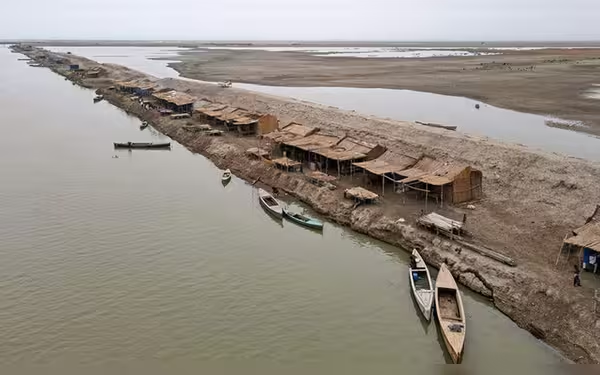Saturday, November 16, 2024 05:39 PM
UK Supports Climate Change Projects in Pakistan
- UK funds seven climate projects in Pakistan.
- Innovative solutions to combat climate change.
- Focus on renewable energy and sustainable technologies.
 Image Credits: dailytimes_pk
Image Credits: dailytimes_pkThe UK announces support for seven climate change projects in Pakistan, focusing on renewable energy and innovative solutions.
The United Kingdom has recently announced its commitment to support seven innovative climate change projects in Pakistan. This initiative comes at a crucial time when Pakistan is grappling with the severe impacts of climate change, particularly after the devastating floods of 2022 that resulted in the loss of over 1,700 lives and displaced millions. Global organizations, including the United Nations, have identified Pakistan as one of the countries most vulnerable to extreme weather events, making this support from the UK both timely and essential.
The British High Commission revealed that the projects will focus on various sustainable technologies, including the construction of solar farms and the use of Artificial Intelligence (AI) to help reduce emissions. The Climate Finance Accelerator (CFA), a £12.6 million technical assistance program funded by the UK government’s International Climate Finance, will provide the necessary support to these projects. This program aims to assist developing countries in addressing the challenges posed by climate change while also seizing new opportunities.
Among the highlighted projects is a 500MW floating solar farm to be built in Keenjhar Lake, which is expected to generate clean energy and lessen the reliance on fossil fuels. Another exciting initiative involves an AI-powered platform designed to monitor and reduce emissions effectively. Additionally, the Quintech Sciences project will cater to eco-conscious consumers, while a biochar project aims to convert agricultural waste into a stable carbon-rich solid, enhancing crop yields and reducing the need for synthetic fertilizers.
Moreover, the Vlektra project will focus on increasing the production capacity of zero-emission electric bikes, promoting cleaner transportation options. The Pakistan Environment Trust project will work on transforming agricultural waste into a clean energy source for industries, and a state-of-the-art facility will be established to produce Recycled Polyethylene Terephthalate (R-PET) resin, which will help reduce plastic usage and lower the carbon footprint.
British High Commissioner Jane Marriott emphasized the significance of these projects, stating that they reflect Pakistan’s leadership in addressing climate issues. She noted, “It is also an example of the UK working in partnership with Pakistan to find home-grown solutions to tackle big issues.” This collaboration not only highlights the importance of international partnerships in combating climate change but also showcases the potential for innovative solutions that can emerge from local contexts.
As the world continues to face the pressing challenges of climate change, initiatives like these serve as a beacon of hope. They remind us that through collaboration and innovation, we can work towards a sustainable future. The success of these projects could pave the way for more such initiatives, not just in Pakistan but globally, encouraging other nations to take similar steps in their fight against climate change. It is a collective responsibility, and every effort counts in creating a healthier planet for future generations.













